Things are getting really tight right now: More and more companies are not managing to drive their digital transformation forward because the necessary specialists are lacking. This is also due to the fact that the huge potential of freelance experts is not being used enough – the so-called “human cloud”. Vicoland closes this gap with its innovative freelance platform.
According to a company survey by IT association Bitkom, Germany currently has a shortage of around 137,000 IT specialists – meaning the deficit is even greater than in the pre-Corona year 2019, when 124,000 positions were vacant. “The shortage of IT specialists is increasingly causing problems for companies and will worsen dramatically in the coming years,” says Bitkom President Achim Berg. “Demographic change means that significantly fewer young people with IT qualifications are entering the job market, and at the same time more older people are leaving relevant professions.” The shortage of skilled workers is becoming the “main obstacle to digital transformation.

(Source: „Anzahl zu besetzender IT Stellen in der Gesamtwirtschaft“, Bitkom Research 2022)
But if we take a closer look, the situation is not as problematic as it first appears. Many IT specialists have become freelancers in past years, so they are still available to the market. Why is that?
A profound change in the demands placed on work can be observed, especially among the young Gen Z. This is not only about part-time, home office and remote work, but above all about more flexibility. In April 2022, the job portal Stepstone surveyed around 11,000 working people for the study “Future. Work. Today.” survey. The result: almost 80 percent believe that they can better achieve their personal job goals if they can freely vary the scope of work and type of employment at any time – i.e., switch between full-time and part-time, freelancing and permanent employment. In this context, a similar number favor the option of being able to work mobile – i.e., digitally and location-independently – at any time. The option of being able to change jobs flexibly at any time is also very popular.
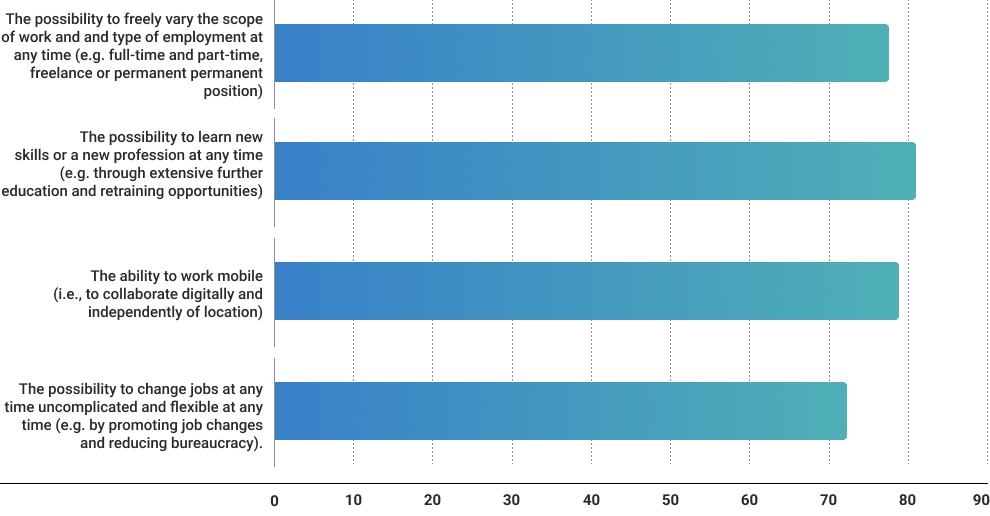
(Source: Study “Future. Work. Today. The Guide to the World of Work in 2030,” Stepstone / Handelsblatt Research Institute)
Against this backdrop, the freelancing option is becoming more attractive. To be sure, 88 percent of respondents still say that job security is an important factor in their career decisions. But that no longer speaks against a freelance orientation today – especially in light of the rampant “workerlessness.” Even a competent freelancer does not have to worry about orders. It is therefore not surprising that 60 percent of those surveyed expect there to be significantly more freelancers in the future.
This constantly growing pool of talent is by no means made up of people who would actually prefer a fixed employment contract – and a classic 9/5 job with a fixed salary and notice period. On the contrary, most freelancers consciously and confidently opt for professional freedom. And they are correspondingly more satisfied than permanent employees – at least in the fields of IT, engineering, finance and life science. This was the result of a survey conducted in January 2022 by the personnel service provider GULP, for which 781 people from these industries were questioned, including 386 freelancers. The result: 51.8 percent of freelancers are “very satisfied,” but only 16.9 percent of permanent employees.
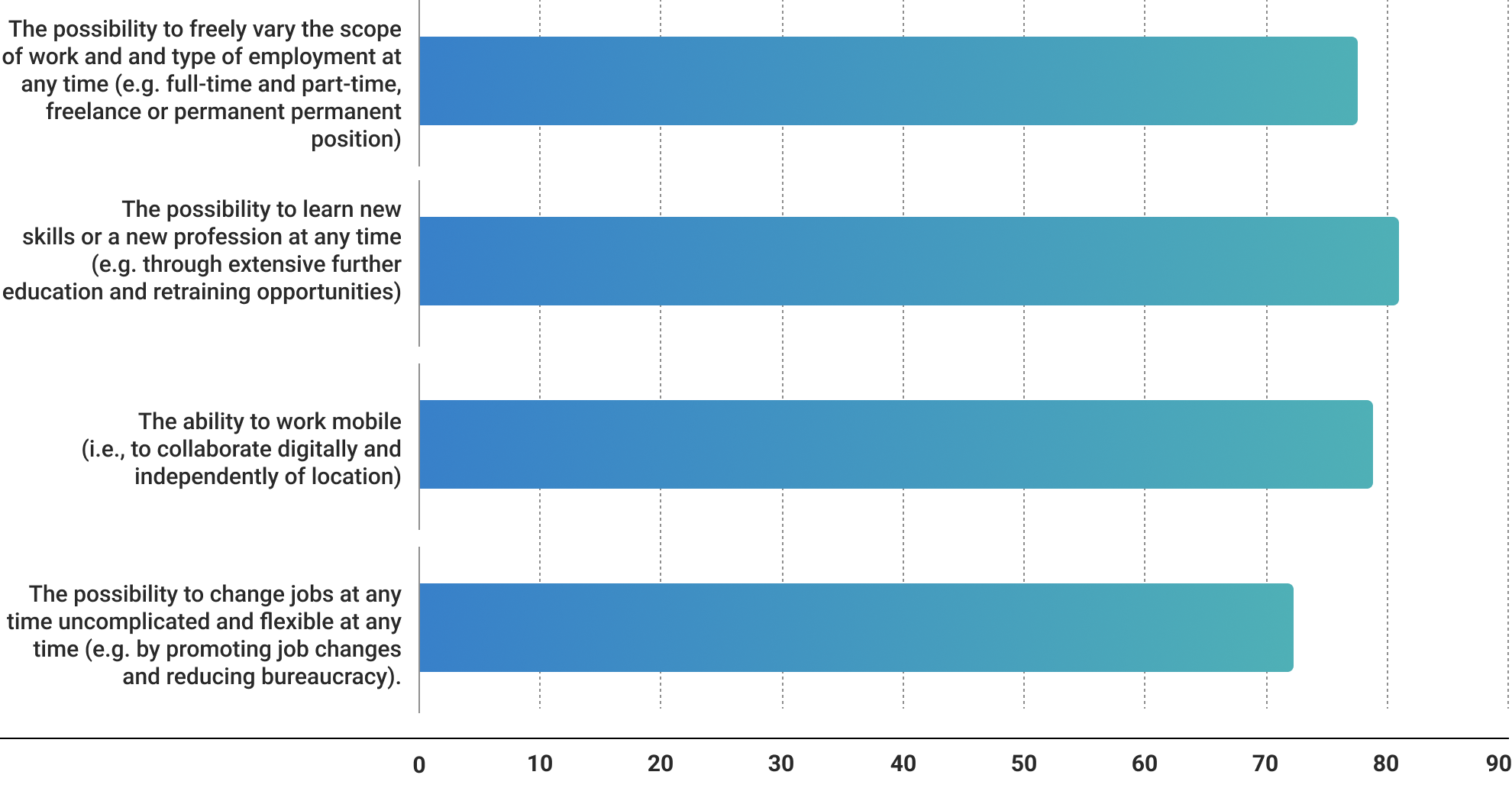
(Quelle: GULP Arbeitsleben Studie 2021)
The freelancing trend has hit the U.S. market in particular. More and more professionals here are doubting the model of permanent employment; the keywords are “The Great Resignation” and “Quiet Quitting”. Freelancing is apparently the appropriate answer, as a survey of 3,000 professionals by the American freelancing platform Upwork shows. According to the survey, freelancers already accounted for 39 percent of the workforce in 2022, compared with just 34 percent seven years earlier. The option is attractive primarily because higher pay beckons: 83 percent of those surveyed by Upwork name “additional money” as the motivation for freelancing, followed by the desire for more flexibility (73 percent) and control over the financial future (72 percent). In addition, freelancers are more satisfied with their professional activities in every respect, they feel healthier and can devote more attention to their families and social contacts.
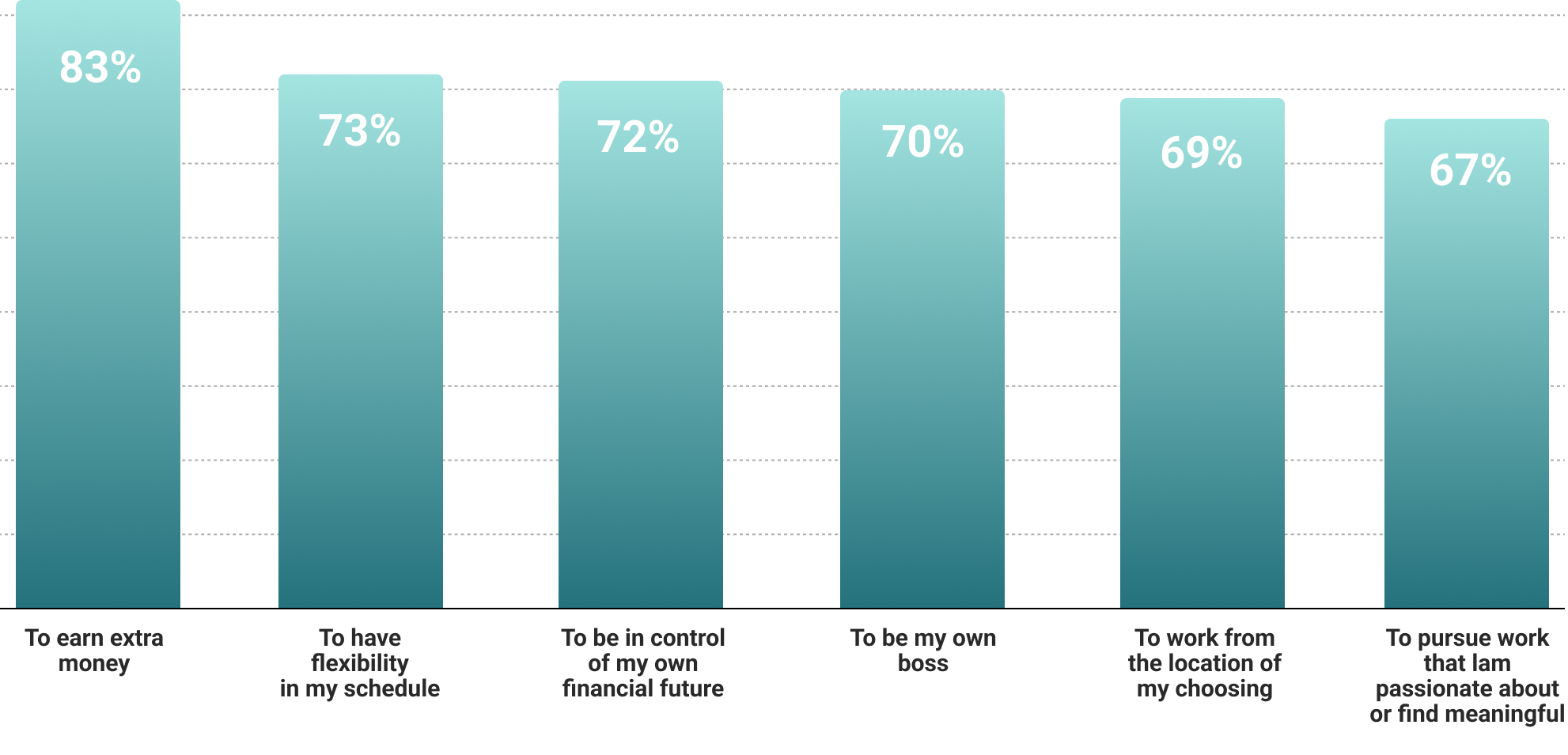
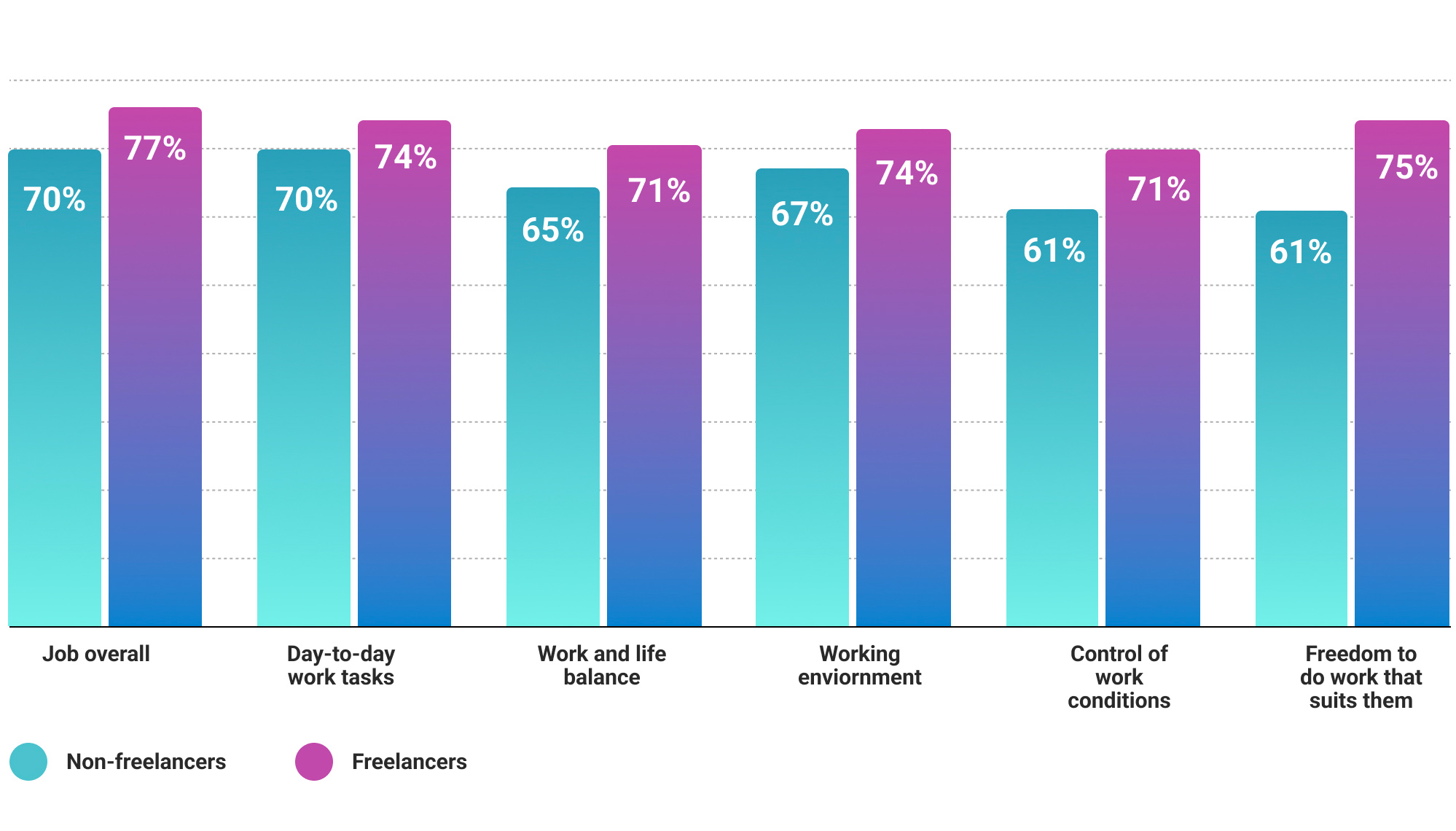
(Source: “Freelance Forward 2022” study, Upwork)
The freelancing wave is particularly noticeable in the tech sector. In the wake of the “Great Resignation,” top performers in particular have left permanent positions – their prospects as freelancers simply look better. Most companies have therefore turned their organizational structures upside down and now work with mixed teams of freelancers and permanent employees. This also means that recruiting processes have to be completely rethought.
The situation is similar in German IT organizations. “The traditional job market is empty, and those who want to fill permanent positions have to dig very deep into their wallets,” says Hans-Ulrich von Freyberg, CEO of the digital agency Cocomore and founder of Vicoland. “For certain topics like SAP Hana, it’s almost impossible to find anyone at all.”
Freelancers naturally benefit from this state of emergency. This was already shown two years ago in the study “IT Professionals 2021,” for which Computerwoche conducted interviews with 437 IT decision-makers. According to the study, 78 percent of companies have employed external specialists in the past twelve months. The proportion of external employees in IT organizations is now 53 percent, compared with 50 percent three years earlier. This trend is expected to continue, with 64 percent of respondents saying that external professionals will be very important or important in the next two years. “Many people want an organization that breathes: people should be able to work flexibly and fully develop their talents in the interests of the company,” comments Hans Königes, Head of Department Jobs & Careers at Computerwoche. “This study confirms this trend.”
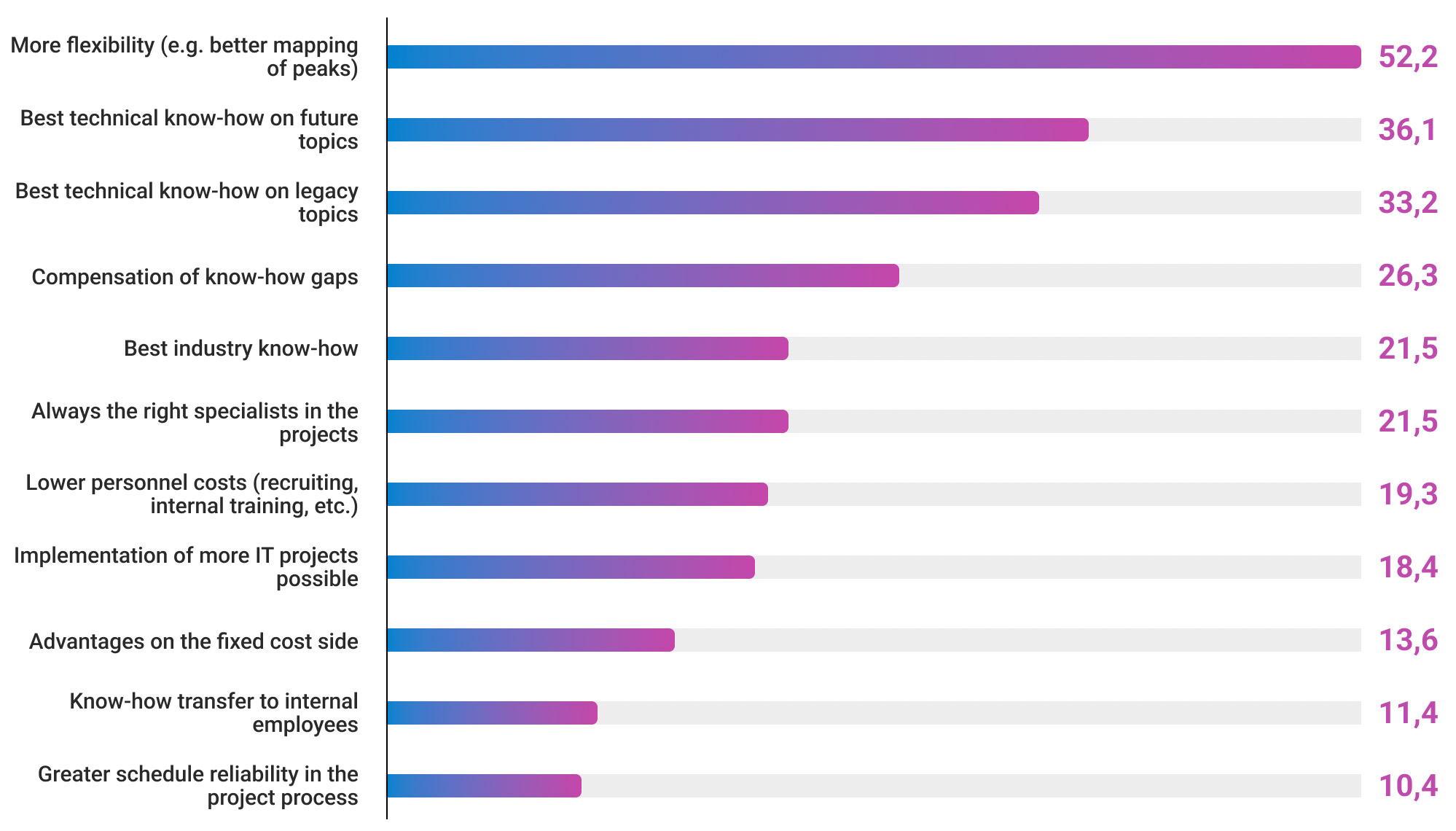
(Source: Study “IT Professionals 2021”, Computerwoche)
What the study also shows, however, is that there is a large pool of freelancers: Although the large pool of freelancers is available, it does not seem to meet demand adequately. According to the study, six out of ten percent of the companies surveyed have fundamental difficulties in recruiting suitable external specialists.
In addition, it is not always easy to integrate freelancers. Large projects in particular require a complex set of skills. Putting together suitable teams can therefore be very time-consuming. And many talents who could actually be put to good use are left out – because they haven’t had access to large projects so far or simply lack the contact. Traditional placement channels often fail at this point.
This is where Vicoland comes into play. The Frankfurt-based company does not place individual people, but complete teams of experts who can be contracted like a traditional service provider – the next evolutionary step in working with freelancers. Its client list already includes companies as diverse as Samsung, Netflix, HDI Insurance and Tupperware.

